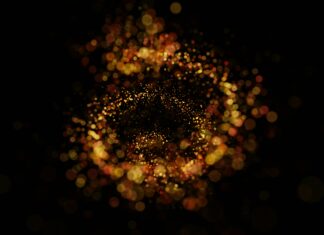Biotechnology, a captivating and multifaceted field of scientific endeavor, encompasses a broad spectrum of innovative techniques, processes, and applications that harness the power of biology to address a myriad of challenges and opportunities. In this comprehensive article, we embark on a journey into the intriguing world of Biotechnology, exploring its rich history, diverse branches, and the profound impact it has made on various aspects of human life and the natural world.
Biotechnology, often simply referred to as “Biotech,” represents a synthesis of biology and technology, where living organisms, or components thereof, are harnessed to develop products, processes, or services that advance our understanding of biology and improve the quality of life. At its core, Biotechnology is the art and science of manipulating the biological building blocks of life—genes, cells, proteins, and more—to create innovative solutions that address a wide range of challenges, from healthcare and agriculture to environmental sustainability and beyond.
The roots of Biotechnology extend deep into the annals of human history. Early civilizations engaged in rudimentary forms of Biotechnology, albeit unknowingly. They practiced techniques like fermentation to produce foods and beverages and used selective breeding to enhance the characteristics of domesticated plants and animals. These ancient endeavors laid the foundation for the modern Biotechnology revolution.
The dawn of the modern Biotechnology era can be traced back to the discovery of the structure of DNA by James Watson and Francis Crick in 1953. This breakthrough unlocked the secrets of heredity and provided the blueprint for genetic manipulation. Subsequent milestones, such as the invention of recombinant DNA technology in the 1970s and the development of polymerase chain reaction (PCR) in the 1980s, ushered in a new era of precision and control over biological systems.
The field of Biotechnology encompasses several distinct branches, each with its own unique focus and applications. Biopharmaceuticals is one of the most prominent branches, where living cells are engineered to produce therapeutic proteins and drugs. The advent of biopharmaceuticals has revolutionized the treatment of various medical conditions, from cancer to autoimmune diseases, offering more targeted and effective therapies.
Agricultural Biotechnology is another vital domain within the field. It involves the genetic modification of crops to enhance their characteristics, such as resistance to pests, tolerance to environmental stress, or increased nutritional content. Genetically modified (GM) crops have become an essential tool in addressing global food security challenges.
Industrial Biotechnology leverages biological processes and organisms to manufacture chemicals, materials, and fuels more sustainably. Microorganisms like bacteria and yeast are engineered to produce biofuels, bioplastics, and enzymes used in a wide range of industries.
Environmental Biotechnology focuses on utilizing biological processes to address environmental challenges. Bioremediation, for instance, employs microorganisms to degrade pollutants in soil and water, aiding in the cleanup of contaminated sites.
Synthetic Biology, a rapidly evolving branch of Biotechnology, seeks to design and construct biological parts and systems for specific purposes. It holds the promise of creating entirely new organisms and biological functions, opening up possibilities for custom-designed microorganisms with applications in medicine, energy, and more.
The impact of Biotechnology on healthcare cannot be overstated. Diagnostic tests based on DNA and protein analysis have revolutionized disease detection and monitoring. Gene therapy holds the potential to treat genetic disorders at their root, offering hope to patients with previously incurable conditions.
In agriculture, genetically modified crops have improved yields and reduced the need for chemical pesticides, contributing to food security in a world with a growing population. Precision breeding techniques allow for the development of crops that are resilient to changing climates and environmental stressors.
Industrial applications of Biotechnology have the potential to reduce our reliance on fossil fuels and mitigate climate change. Biofuels, such as ethanol and biodiesel, are produced from renewable resources and offer a more sustainable alternative to traditional fossil fuels.
The field of Environmental Biotechnology plays a critical role in addressing pollution and waste management. From biodegradable plastics to wastewater treatment technologies, Biotechnology offers eco-friendly solutions to pressing environmental challenges.
Synthetic Biology, with its capacity to engineer life at the genetic level, is at the forefront of innovation. From creating bioengineered organisms for targeted drug delivery to designing biological sensors for environmental monitoring, the possibilities are boundless.
As Biotechnology continues to advance, ethical and regulatory considerations become increasingly important. Questions surrounding the safety of genetically modified organisms, the ownership of genetic information, and the responsible use of powerful Biotechnological tools require careful deliberation.
In conclusion, Biotechnology stands as a testament to human ingenuity and our ability to harness the incredible potential of the natural world. It is a field that transcends boundaries, merging biology and technology to solve complex challenges and enhance the quality of life for humanity and the planet. From healthcare to agriculture, from industry to the environment, Biotechnology continues to shape our world and holds the promise of a more sustainable and innovative future. Its journey is far from over, and the discoveries and innovations it will bring in the years to come are bound to be as awe-inspiring as those of the past.
Within the realm of scientific exploration, Biotechnology emerges as a captivating tapestry woven with the threads of discovery, innovation, and the intricate dance between humans and the living world. While it’s common to focus on the pragmatic applications and breakthroughs associated with Biotechnology, there exists a profound narrative that transcends the technical details—a narrative of wonder, ethical considerations, and the artistry of scientific pursuit.
In the grand mosaic of scientific disciplines, Biotechnology occupies a unique space where life itself becomes both the canvas and the paintbrush. It beckons us to delve into the very essence of existence, unraveling the secrets of DNA, cells, and organisms, and harnessing this knowledge for the betterment of society and the world.
At its heart, Biotechnology is a reflection of our innate curiosity—the human longing to understand the inner workings of life’s machinery. From the early experiments with fermentation by ancient civilizations to the contemporary feats of gene editing and synthetic biology, our journey through Biotechnology is a testament to our unyielding desire to peel back the layers of nature’s mysteries.
In the vast tapestry of Biotechnology, one finds the intricate patterns of ethics interwoven with each thread of scientific progress. The power to manipulate genes and organisms brings with it profound moral questions. How far should we venture into the realm of genetic modification? What are the boundaries between enhancing human abilities and meddling with nature’s design? These questions resonate through the corridors of ethics, challenging us to tread carefully and consider the long-reaching implications of our discoveries.
Moreover, Biotechnology is a testament to the collaborative symphony of interdisciplinary expertise. It marries the precision of molecular biology with the computational prowess of bioinformatics, the engineering finesse of bioprocess technology with the imaginative ingenuity of synthetic biology. This symphony of knowledge converges to create a harmonious interplay, where scientists and researchers from diverse fields orchestrate their skills to unravel the mysteries of life.
As we navigate this intricate terrain, it is imperative to recognize that the pursuit of knowledge through Biotechnology is not devoid of artistic expression. The scientist becomes an artist of the microscopic world, sculpting DNA with the precision of a master craftsman, coaxing cells into dance routines choreographed by genetic sequences, and painting vibrant portraits of organisms engineered for specific purposes.
The canvas of Biotechnology extends beyond the confines of laboratories and research institutions. It spills over into the realm of art, literature, and culture. Artists draw inspiration from the biological wonders unveiled by Biotechnology, creating thought-provoking works that challenge our perceptions of identity, ethics, and the boundary between the natural and the artificial. Writers and poets find metaphors and allegories in the genetic code, weaving stories that explore the essence of life itself.
In the sphere of education, the study of Biotechnology is not merely a pursuit of knowledge; it is an invitation to wonder and curiosity. It inspires young minds to ask questions about the world around them, to ponder the ethical dimensions of scientific discovery, and to dream of a future where Biotechnology continues to reshape the landscape of possibilities.
The canvas of Biotechnology also extends into the realm of global challenges. The quest for sustainable agriculture, the mitigation of climate change, and the eradication of diseases are all challenges where Biotechnology’s brush strokes have the potential to create transformative solutions. It offers the promise of crops that withstand droughts, biofuels that reduce carbon emissions, and treatments that combat previously incurable illnesses.
In the world of conservation, Biotechnology presents a compelling narrative of hope. Efforts to preserve endangered species, revive ecosystems, and combat poaching find a powerful ally in the form of genetic technologies. Conservationists envision a future where species on the brink of extinction can be rescued through genetic interventions, breathing life back into ecosystems on the verge of collapse.
The narrative of Biotechnology is not confined to laboratories and research papers; it is a story told through the lens of human values, aspirations, and dreams. It is a story that challenges us to embrace the responsibilities that come with the power to manipulate life itself. It beckons us to ponder the ethical choices we make as we navigate the complexities of genetic engineering and biomedicine.
In conclusion, Biotechnology is a profound narrative that weaves together the threads of human curiosity, ethical considerations, interdisciplinary collaboration, and artistic expression. It is a journey that transcends the boundaries of science and technology, inviting us to explore the essence of life itself. As we navigate this intricate tapestry, we must tread with reverence for the wonders of the living world and the ethical implications of our actions. Biotechnology is not just a scientific endeavor; it is a reflection of our humanity, our aspirations, and our relentless pursuit of understanding and improving the world around us.
Biotechnology, as a field of scientific exploration and innovation, beckons us to embark on a journey that transcends the boundaries of practical applications and technical details. It invites us to step into a realm where the very essence of life itself is examined, where humanity’s quest for knowledge, wonder, and ethical reflection takes center stage.
At its core, Biotechnology is an ode to our innate curiosity—the profound desire to understand the intricacies of the biological world. From the humble beginnings of fermenting beverages in ancient civilizations to the current frontiers of genome editing and synthetic biology, the narrative of Biotechnology unfolds as a testament to our relentless pursuit of unraveling the mysteries of life.
This journey through the world of Biotechnology reveals the intricate tapestry woven by the threads of scientific discovery and ethical contemplation. It is a journey where humanity grapples with profound questions—questions that resonate through the corridors of ethics, challenging us to consider the moral implications of our scientific endeavors.
The power to manipulate genes and organisms through Biotechnology is not a mere scientific endeavor; it is a profound exploration of our role as stewards of the living world. It raises questions about the boundaries of our intervention in nature’s design and the responsibilities that come with wielding the tools of genetic modification.
Biotechnology, however, is more than a laboratory pursuit. It is a collaborative symphony that unites experts from diverse fields in an interdisciplinary dance. Biologists, chemists, engineers, and computer scientists come together, each playing a unique instrument in the orchestra of discovery. Their harmonious collaboration enables the orchestration of complex genetic sequences and the creation of novel biological entities.
This symphony of knowledge extends beyond laboratories. It resonates in the realms of art, literature, and culture. Artists draw inspiration from the intricate structures of DNA, creating works that challenge our perceptions of identity, ethics, and the blurring line between the natural and the artificial. Writers and poets find metaphors and allegories in the genetic code, crafting narratives that delve into the essence of life itself.
Biotechnology is not just a domain of intellectual pursuit; it is an educational journey that inspires the next generation of scientists and thinkers. It ignites the spark of curiosity in young minds, prompting them to explore the wonders of biology and the possibilities of scientific discovery. It nurtures the growth of future innovators who will carry the torch of exploration forward.
The canvas of Biotechnology extends into the realm of global challenges. It offers a palette of solutions to address pressing issues such as sustainable agriculture, climate change, and disease eradication. Biotechnology promises crops that can withstand droughts, biofuels that reduce carbon emissions, and therapies that combat previously incurable illnesses.
In the sphere of conservation, Biotechnology is a beacon of hope. Efforts to protect endangered species, restore ecosystems, and combat poaching find a powerful ally in genetic technologies. Conservationists envision a future where genetic interventions can rescue species on the brink of extinction, breathing life back into ecosystems on the verge of collapse.
The narrative of Biotechnology is not confined to laboratory settings or research papers. It is a story that unfolds through the lens of human values, aspirations, and dreams. It challenges us to embrace the ethical responsibilities that come with the power to manipulate life itself. It beckons us to ponder the choices we make as we navigate the intricate terrain of genetic engineering and biomedicine.
In conclusion, Biotechnology is a profound narrative—a narrative that transcends the boundaries of scientific disciplines and technical details. It is a journey that invites us to explore the essence of life, to contemplate ethical considerations, and to appreciate the collaborative symphony of interdisciplinary knowledge. Biotechnology is not merely a scientific endeavor; it is a reflection of our humanity, our aspirations, and our relentless pursuit of understanding and improving the world around us. It is a narrative that continues to unfold, offering new wonders and challenges as we navigate the ever-evolving landscape of biotechnological exploration.


















